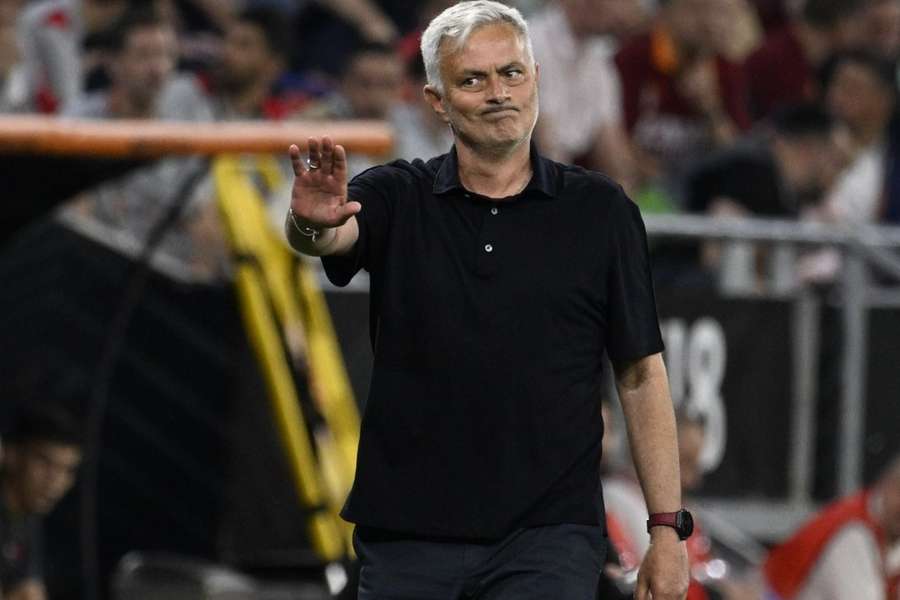Fernández Borbalán officiated in La Liga for over a decade, debuting in Spain’s top flight in 2004. But it was a Copa del Rey El Clasico that he admits was one of the toughest nights of his career. In the 2011 clash, Fernández Borbalán showed seven yellow and three red cards on the night. However, the tie will always be remembered for former Real Madrid coach Jose Mourinho's poke in the eye for then Barcelona assistant coach Tito Vilanova.
Having retired in 2018, Fernández Borbalán is now mentoring the next generation of match officials and spoke with Tribalfootball.com about his career and the changes we've seen in refereeing over recent years.
Can you share your memories of your debut as a La Liga referee in 2004?
Sincerely, despite the years that have passed, that memory remains vivid. I never imagined, at the beginning of my refereeing journey, that I would reach La Liga. That day, I felt an overwhelming sense of pride—it was a validation of all the effort I had put in. I also thought a lot about those who supported me: my family, close friends, and my local referees’ committee. Their guidance in my formative years was invaluable, and I will always be grateful.
What were the best and most challenging moments of your career?
I feel immense happiness when I reflect on my 14 seasons in La Liga. Traveling around the world made me realize how prestigious it was to officiate games like El Clásico or major derbies.
However, like any athlete, I also experienced tough moments. For referees, nothing is worse than making a critical mistake in a match. It hurts to let down the team affected, your referees' committee, and yourself because you strive to perform at your best.
The most challenging moment of my career was an injury I suffered during the Anzhi-Liverpool match in 2012. I tore a ligament in my knee and was sidelined for six months. Overcoming that period was extremely tough, both physically and mentally.
As a referee, how did you deal with players of varying personalities?
At the highest level, referees must “manage” players with challenging personalities. Building trust and fostering good harmony on the field are crucial. While I prefer not to name difficult players, I will say that there are individuals who embody the ideal attitude. Players like Raúl González (Real Madrid) and Carles Puyol (Barcelona) always treated referees with respect, even during tense moments. They would question decisions, but always politely, and deserved explanations in return.
What about coaches? Were any particularly hard to manage?
José Mourinho stands out. His tenure at Real Madrid, particularly during heated clashes with Barcelona, was filled with high tension. I officiated one such Clásico where Mourinho had a serious altercation with Barcelona’s assistant coach. The atmosphere in those games was electrifying but exhausting.
I’d also like to honor Manuel Preciado, a Spanish coach who passed away in 2012. He was passionate and expressive but always respectful. No matter the result, he would visit the referee's room post-match to offer congratulations—a true example of sportsmanship.
Any particularly special moments during your career?
The 2012 Copa del Rey final at the Vicente Calderón stadium holds a special place in my heart. Athletic Club faced Barcelona, and my family—my mother, wife, and sister—were in the stands. Sharing such a significant moment with them was unforgettable.
Which stadium had the most impressive atmosphere?
While I was fortunate to officiate in many iconic venues, Signal Iduna Park (Borussia Dortmund’s stadium) left a lasting impression. The fans’ passion and energy create an electrifying atmosphere unmatched anywhere else.
How has refereeing changed since your early days?
Referees, like players, now have access to advanced resources for physical, nutritional, and psychological preparation. This evolution has elevated officiating standards significantly since my debut in 2004.
What are your thoughts on VAR?
VAR was introduced to assist referees, and it has undeniably reduced errors. However, its use in subjective decisions still generates controversy, as interpretations vary. While some prefer football without VAR, I support technological assistance—it’s a valuable tool to improve fairness.
How would you assess refereeing standards this season?
Spanish referees are performing exceptionally well. With the league being more competitive than ever, they face additional pressure, but their professionalism is commendable. In Europe, Roberto Rosetti’s leadership at UEFA has elevated standards, with top-level referees now emerging from many countries.
What have you been up to since retiring?
I’ve remained deeply involved in refereeing. I served as Vice President of the Spanish referees' committee for four years, then moved to Bulgaria as the President of its referees' committee. Currently, I work as a FIFA and UEFA referee instructor and observer for international matches. I’m open to future opportunities, wherever they may arise.
